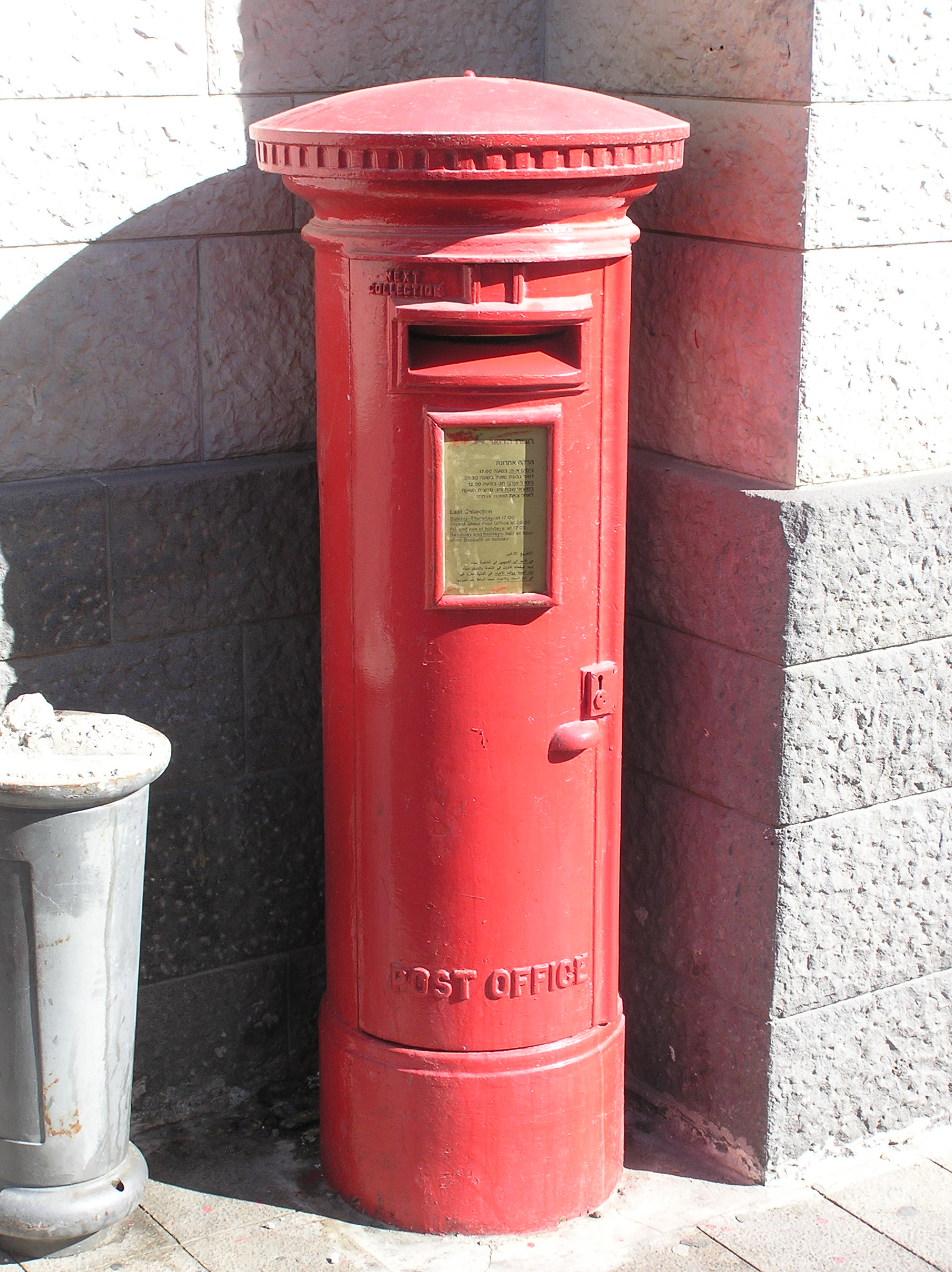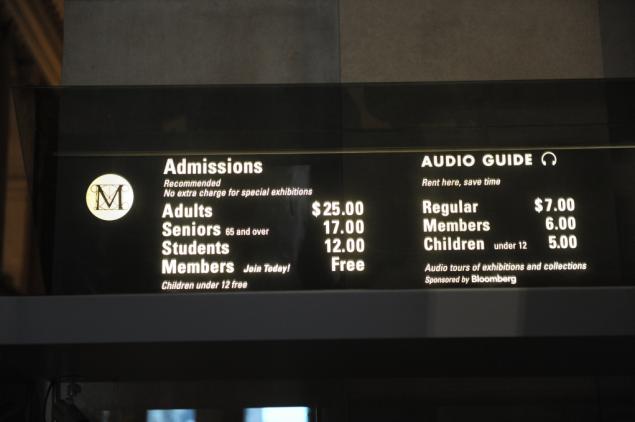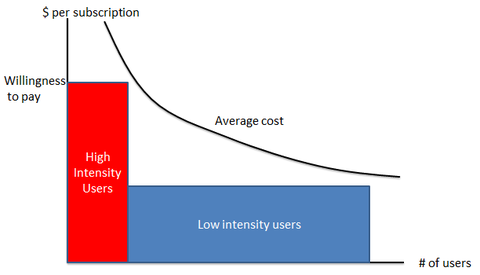In an earlier post I talked about how firms with a large set of distinct items to sell - a cable television provider with many channels; a museum with many rooms - would find it most efficient to offer only a package deal to customers, with no a la carte offerings, even when customers complain that they really only want a very small sample of what is on offer. An example I did not give at the time was academic publishing. But publisher's strategies follow this same model. As an example, I will use Taylor & Francis, although I will note … [Read more...]
How quality differentials work
It is standard practice to offer to customers a range of quality levels. In clothing, electronics, and cars we see firms offer a range of products as a means of price discrimination: some customers are on a budget, or don't care so much about the luxury of the item, and are looking for something basic and low-price. Other customers really do care about distinctions of quality, and are willing to pay to get the best. It's not difficult then to see the logic in offering standard and premium goods. The rule of thumb is this: the quality … [Read more...]
Paywalls at Newspapers and Museums
Felix Salmon investigates how newspaper paywalls are evolving: In the early days of paywalls, some content was free, while other content you needed to pay for; the meter, in theory, replaced that system with one where the determination as to whether an article was free or not was a function of how many other articles the reader had read, rather than being a function of the content of the article itself. But this is a bit simplistic: [I]t’s a mistake — at least from a purely financial perspective — to treat all readers equally. Some readers … [Read more...]
How bundling works
LOVEtheatre of London will provide me with a special deal: I can get two tickets to Wicked, together with two "free" meals (drinks not included) to be chosen from a short list of participating restaurants. But if they want to attract me to Wicked, why not just lower the ticket price? Why give me the discount through a dinner for two? Delta airlines will save me money on a trip to Puerto Rico, but only if I stay at the Sheraton, and the trip is for three nights. If I buy gasoline from Shell, I can get a discount on a ski lift pass. But what do … [Read more...]
About those museum prices
My post staking a claim that $25 to visit the Metropolitan Museum of Art was not expensive generated some comments. There are two issues at play here, not entirely separable: first, that compared to other genres of art, high and low, $25 to see what is one of the world's greatest collections of art is not widely at odds with what one pays elsewhere, and in fact might even be somewhat less, and, second, regardless of the price compared to other genres, ought the Museum to charge a price as high as $25? The focus of my post was on the first … [Read more...]
Museums are not expensive
New York's Metropolitan Museum of Art is being sued for strongly suggesting that its "recommended" donation for entry is in fact required of visitors. Associated Press reports: 'The museum was designed to be open to everyone, without regard to their financial circumstances,' said Arnold Weiss, one of two attorneys who filed the lawsuit on behalf of three museum-goers, a New Yorker and two tourists from the Czech Republic. 'But instead, the museum has been converted into an elite tourist attraction.' In the New York Daily News, James Panero … [Read more...]
On Google, and why price discrimination is good for consumers
Paul Krugman writes about the decision by Google to shut down Google Reader. Whatever your thoughts on the good or evil nature of Google, he raises an important issue for thinking about price discrimination: there are cases where, if no price discrimination is possible, such that the seller can only charge one price to all, there does not exist a price that can possibly allow the firm to cover its costs. And this is true even if the total value consumers place on the good (as measured by their reservation prices - their willingness to pay for … [Read more...]
How two-part pricing works
In the previous post we set out the basic idea behind price discrimination: your potential audience has different maximum prices they are willing to pay for what you have on offer (their "reservation prices") and you want to find a way to get individuals to pay something close to their personal maximum, so long as it covers their marginal cost to you. Two-part pricing is a type of indirect price discrimination: everyone is offered the same deal when it comes to prices, and they choose options that reveal whether they have high or low … [Read more...]
A primer on price discrimination
My previous two posts dealt with different aspects of price discrimination, and since many future posts will cover the topic from various angles, I think it worthwhile to go over a few basic ideas and definitions. Marginal cost will be defined here as the cost to your arts organization of serving one more customer. It might be one more person through the turnstiles of your museum, one more person taking a seat for your performance or festival. For the examples just given, marginal cost might be very close to zero - it costs nothing at all to … [Read more...]
Voluntary price discrimination is not a new idea
Alyssa Rosenberg on crowdsourcing new movies: One thing that’s striking about the Veronica Mars Kickstarter is that you have to give at least $35, more than four times the cost of the average American movie ticket in 2012, to get a digital download of the movie. You have to give $750 to get a ticket to the premiere of the film in Los Angeles. An Andrew Sullivan reader says: What I find particularly brilliant about the Rob Thomas/Veronica Mars Kickstarter project is that the producers of a good have found a way to exploit certain consumers’ … [Read more...]









